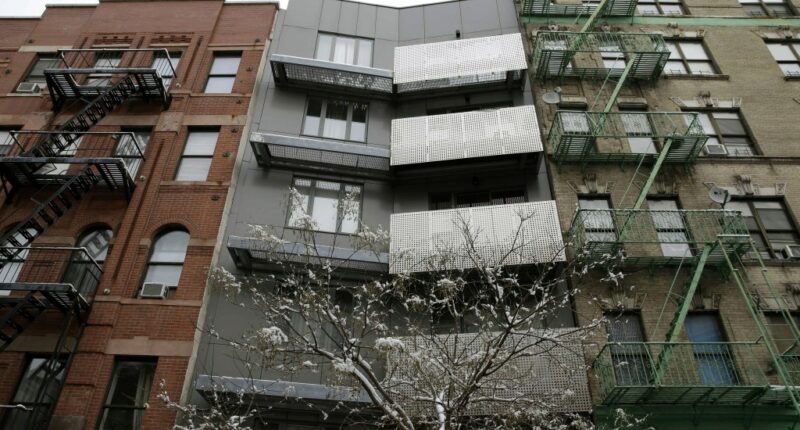Share this @internewscast.com

New York City stands on the brink of a landmark election, marked by a potential democratic socialist triumph. As voters approach the polls, they’ll also need to address three crucial housing-related ballot questions. Our stance is firm: a YES vote on proposals 2, 3, and 4 is essential.
Over the past few years, we’ve been actively campaigning for and promoting policies to transform the housing system from one driven by profit to one that meets people’s fundamental housing needs. Achieving housing justice for all requires expanding our housing stock, and these ballot proposals are vital steps in that direction—especially when combined with the ongoing efforts of our movement.
We urge a YES vote because we must address the city’s actual needs. Our strategy requires both robust tenant protections and the construction of affordable homes with public purpose. New York City faces a significant housing shortage exploited by landlords, yet recent years have shown that tenants can emerge victorious. Strengthening tenant power and accelerating housing production at a sustainable cost and pace is crucial.
Some advocate for “community control” as a democratic solution, but in practice, it has often been co-opted. Affluent homeowner groups frequently use procedural barriers to block shelters, hinder affordable housing in segregated neighborhoods, and even prevent housing for seniors returning from incarceration. The current system is not genuine democracy; it’s a complex veto mechanism that maintains exclusion.
True democracy involves citywide, equity-focused planning with clear rules and meaningful public participation, not countless veto opportunities that empower those most capable of opposing change. The current approval process for projects is lengthy, with each phase consuming valuable time. While large luxury developments can navigate these hurdles, smaller, mission-driven, and nonprofit builders struggle as costs mount. Streamlining the process is crucial for achieving deep affordability.
The ballot proposals directly address these challenges. Proposal 2 aims to expedite publicly funded, deeply affordable projects and open opportunities in historically exclusionary areas. It reduces decision-making periods and allows simultaneous rather than sequential reviews, eliminating unnecessary delays while maintaining transparency and community involvement.
Proposal 3 helps the city move quickly to acquire distressed or predatory portfolios and convert them to social/public use. Proposal 4 creates an affordable housing review board that allows Council members to still negotiate for local needs.
These ballot proposals will also help the next mayor deliver the housing platform the city has spoken in favor of: streamlining the public path to build, cut red tape that favors luxury over affordable housing, and finally add homes in high-opportunity neighborhoods that have blocked them. Yes, these tools were initiated under Mayor Adams, but tools are shaped by how we use them.
Put them in a pro-tenant, public-builder administration, and they become enablers for social housing and deeper affordability, not giveaways for luxury real estate. Taken together, these proposals grow the pie for labor.
We want to be explicit about three things in our argument. First, these reforms are not a silver bullet. Outcomes will, and must, depend on organizing, budget choices, and public stewardship over the long term. We are also not making a YIMBY, “abundance” argument. We are not claiming that market-rate supply alone will solve the crisis.
Our case continues to be for public or mission-driven production, non-market tenure, subsidy directed to the lowest incomes, and enforceable tenant protections. We do not see these operating to centralize power under the mayor. Under the new mayor we should work to centralize the capacity, but meaningfully decentralize the power. We support using central administrative tools while expanding decentralized, durable people power — tenant unions, district housing assemblies, participatory budgeting, and community stewardship institutions.
We don’t have to choose between a progressive building agenda and tenant power. Passing these proposals doesn’t replace the fights for universal rent stabilization, social housing, and major public investment, but it enables them by lowering per-unit costs and speeding public delivery so subsidy goes further.
In the end, no policy is perfect and so much will depend on the mobilization of movements. Vote YES on Proposals 2, 3 and 4 so a pro-tenant, pro-union administration can act like a public developer — faster, cheaper, fairer, while we keep building tenant power and winning the long-term investments that make housing a right.
Baiocchi is a professor of individualized studies and sociology and is the founding director of the Urban Democracy Lab. Carlson is an assistant professor of sociology at Kean University.

















